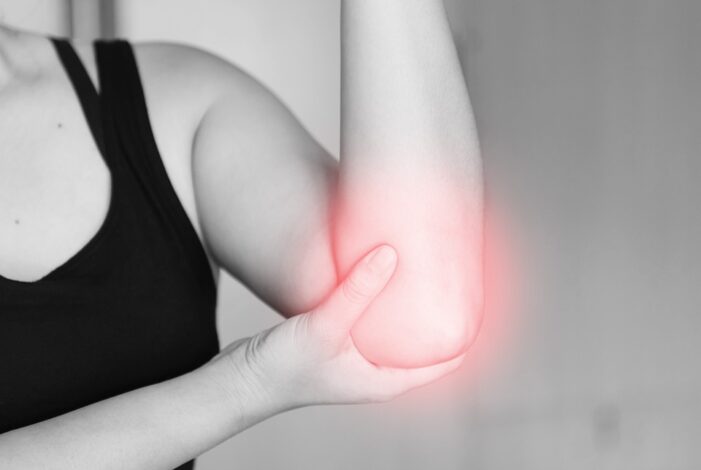Using the power of herbal teas for arthritis relief is fast gaining in popularity. Arthritis is a medical condition that globally affects millions of people demonstrated by inflammation, pain, and stiffness in the joints.
It is a broad term for more than 100 different types of joint diseases and conditions, including osteoarthritis, rheumatoid arthritis, gout, and others.
Types of Arthritis and Symptoms
According to the Centers for Disease Control and Prevention (CDC), approximately 54 million adults in the United States alone have been diagnosed with arthritis (2022). making it one of the most common chronic health conditions in the country.
Globally, the World Health Organization (WHO) estimates that around 1 in every 4 adults has some form of arthritis (2022).
Osteoarthritis: This is the most common form of arthritis and occurs when the protective cartilage on the ends of bones wears down over time.
Rheumatoid Arthritis: This is an autoimmune disease that causes inflammation in the joints and can lead to joint damage.
Gout: This is a type of arthritis that is caused by the buildup of uric acid crystals in the joints, leading to sudden, severe episodes of pain and swelling.
Psoriatic Arthritis: This type of arthritis occurs in people with psoriasis, a skin condition that causes red, scaly patches.
Ankylosing Spondylitis: This is a type of arthritis that affects the spine and can lead to a fusion of the vertebrae.
Symptoms of Arthritis
- Pain and stiffness in the joints
- Swelling in the joints
- Limited range of motion
- Redness and warmth in the affected area
- Decreased ability to perform daily activities
Causes of Arthritis
Aging: As we age, the cartilage in our joints can deteriorate, leading to osteoarthritis.
Genetics: Certain genetic factors may increase your risk of developing certain types of arthritis.
Previous Joint Injury: A previous injury to a joint can increase the risk of developing arthritis in that joint later in life.
Obesity: Excess weight can put added pressure on the joints, increasing the risk of developing arthritis.
Overuse: Repetitive motions or overuse of a joint can increase the risk of developing arthritis.
Best Herbal Teas for Arthritis Relief
In recent years, herbal teas have gained popularity as a natural remedy for a variety of health conditions, including arthritis.
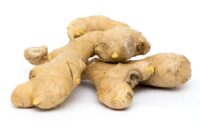
Herbal teas are made from a variety of herbs and plants and are known for their anti-inflammatory, antioxidant, and pain-relieving properties.
Some of the most popular herbal teas for arthritis include ginger, turmeric, willow bark, and devil’s claw.
Tea brewed from these natural herbs and plants are generally better if you can do so. Some people prefer using loose tea leaves for brewing. When this is not readily feasible, packaged teas work just as well.
You just need to check the package food label for ingredients as many herbal teas that claim to be turmeric, ginger etc teas, may not have the active ingredients and may be artificially flavored.
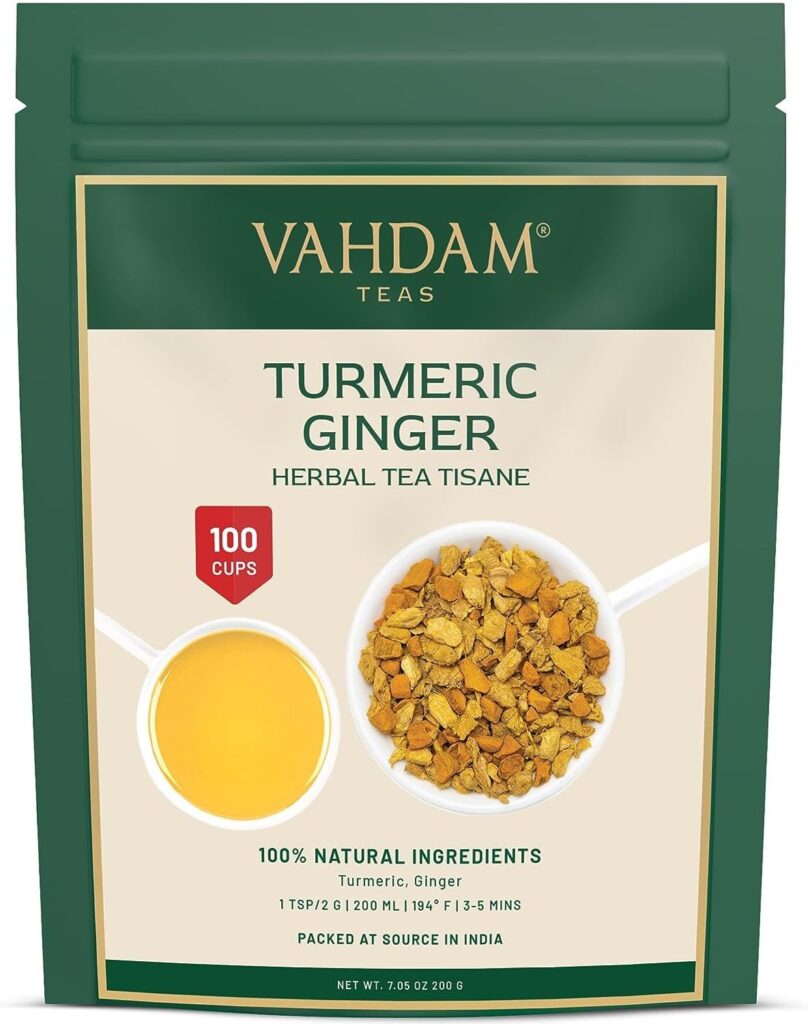

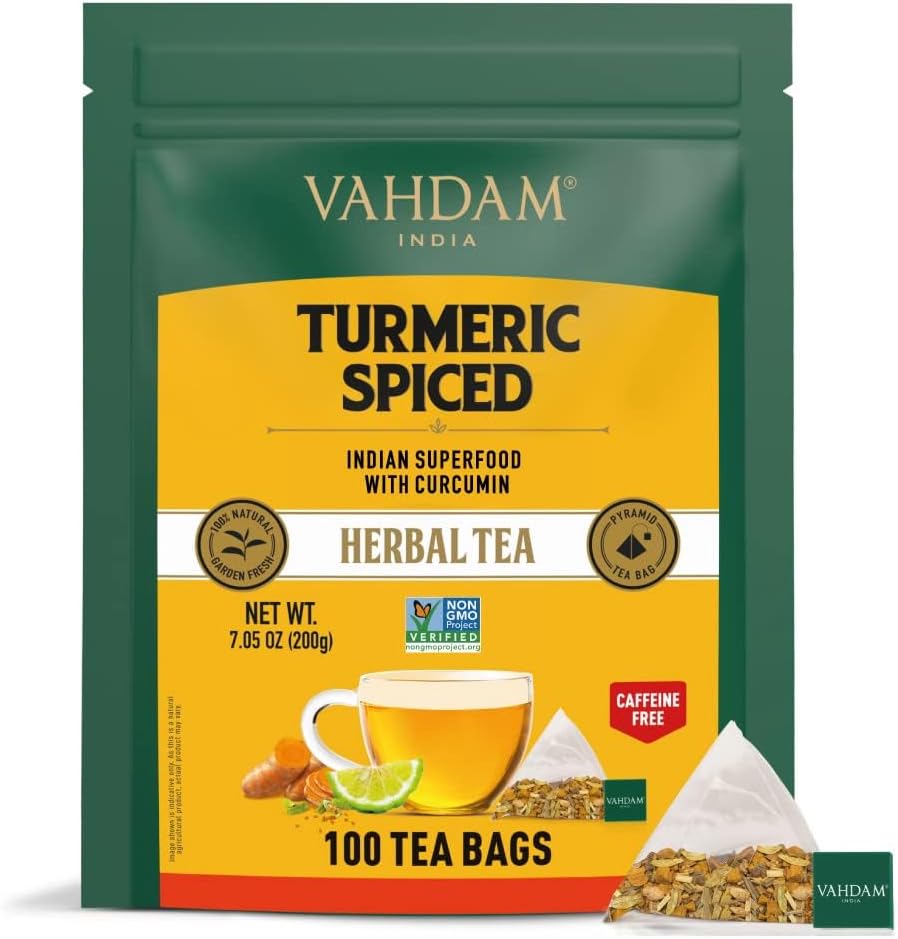
Ginger Tea
Ginger is a well-known anti-inflammatory agent and has been used for centuries to treat various ailments, including arthritis.
It contains compounds called gingerols and shogaols that have been shown to reduce inflammation in the body, as well as alleviate pain and swelling in the joints.
Beware of packaged teas that advertise as “Ginger tea” that barely have any in them. Check the label for ingredients.
Turmeric Tea
Turmeric is another popular herbal tea that is commonly used for its anti-inflammatory properties. It contains a compound called curcumin, which has been shown to reduce inflammation in the body and provide pain relief for those with arthritis.

Green Tea
Green tea is known for its high antioxidant content, which can help to reduce inflammation in the body and provide relief for those with arthritis.
It contains a compound called EGCG, which has been shown to have anti-inflammatory effects and may help to slow down the progression of joint damage.
Licorice Root Tea
Licorice root is a natural anti-inflammatory agent and has been used for centuries to treat various ailments, including arthritis.
It contains compounds called glycyrrhizin and glabridin that have been shown to reduce inflammation in the body, as well as provide pain relief for those with arthritis.
Willow Bark Tea
Willow bark has been used for centuries to treat pain and inflammation and is often recommended for those with arthritis.
It contains a compound called salicin, which has been shown to have anti-inflammatory effects and may help to reduce pain and swelling in the joints.
How Herbal Teas Help with Arthritis
Herbal teas have long been used as a natural remedy for various health concerns, including arthritis.
The active ingredients in these teas can help reduce inflammation in the joints, slow down the progression of joint damage to improve joint mobility, and alleviate pain and swelling to provide pain relief.
When regularly consumed, these teas can help to manage arthritis symptoms and improve overall joint health.
It is important to remember that while herbal teas can provide relief, they should not be used as a replacement for traditional medical treatment.
It is always best to consult with a healthcare professional before trying any new herbal remedies.
Incorporating these teas into your daily routine can be a safe and natural way to manage your arthritis symptoms and improve your overall health and wellness.
Anti-inflammatory Properties – Herbal Teas Good for Arthritis
Herbal teas, such as ginger, turmeric, green tea, licorice root, and willow bark, contain natural anti-inflammatory compounds that can help to reduce inflammation in the body and provide relief for those with arthritis.
These compounds, such as gingerols, shogaols, curcumin, glycyrrhizin, glabridin, and salicin, work by blocking certain enzymes and signaling pathways that contribute to inflammation, thereby reducing pain and swelling in the joints.
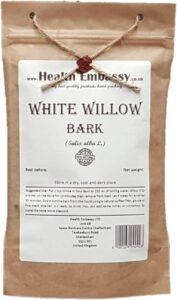
Antioxidant Properties
Many herbal teas, such as green tea, are high in antioxidants, which can help to reduce oxidative stress in the body and slow down the progression of joint damage.
Antioxidants work by neutralizing free radicals, which are harmful molecules that can contribute to inflammation and joint damage.
By reducing oxidative stress, these teas can help to improve overall joint health and provide relief for those with arthritis.
Pain-Relieving Properties
Some herbal teas, such as ginger and willow bark, contain natural pain-relieving compounds that can help to alleviate pain and swelling in the joints.
These compounds work by blocking certain pain signaling pathways, reducing the sensitivity of pain receptors, or altering the production of pain-causing chemicals in the body.
By providing pain relief, these teas can help to improve the quality of life for those with arthritis.
Herbal Teas Good For Arthritis – The Importance of Quality and Dosage
When using herbal teas for arthritis relief, it is important to choose high-quality, pure teas that are free of contaminants and additives.
Additionally, it is important to follow recommended dosages and to consult with a healthcare professional before trying any new herbal remedies, as some teas may interact with other medications or have potential side effects.
By taking these precautions, you can ensure that you are getting the most benefits from herbal teas and that you are using them in a safe and effective manner.
4 Tips for Using Herbal Teas for Arthritis Relief
Herbal teas can be a valuable addition to your daily routine if you suffer from arthritis.
Here are a few tips to make sure you get the most out of your tea:

- Start slowly: If you are new to drinking herbal teas, start with just one cup a day and gradually increase to two or three as your body adjusts.
- Choose the right time to drink the tea: Drinking herbal teas before bed can help you get a good night’s sleep while drinking them in the morning can give you a natural energy boost.
- Experiment with different teas: Different herbal teas can have different benefits for arthritis sufferers, so try a few different options to see which ones work best for you.
- Make it a habit: Regularly incorporating herbal teas into your routine can help you see the best results, so do not expect a miracle after one day!
Choosing High-Quality Teas
To get the most out of your herbal teas, it’s important to choose high-quality, organic products. Here are a few things to look for:
- Reputable brands: Do your research to find brands with a strong reputation for producing high-quality herbal teas.
- Organic: Organic teas are free of harmful chemicals and pesticides, which can be particularly important for people with arthritis.
- Avoid additives: Steer clear of teas that contain artificial colors, flavors, or sweeteners, as these can be harmful to your health.
Work with a Healthcare Professional if Necessary
While herbal teas can be a safe and natural way to help manage arthritis symptoms, it’s always a good idea to work with a healthcare professional. Here’s why:
- Personalized recommendations: A healthcare professional can help you choose the best herbal teas for your specific needs and provide personalized recommendations.
- Safety first: They can also ensure that the teas you choose are safe for you to drink, especially if you are taking any other medications.
- Monitoring progress: Working with a healthcare professional can also help you monitor your progress and make any necessary adjustments to your routine.
Potential Side Effects
While herbal teas are generally considered safe, it’s important to understand the potential side effects. Here are a few things to keep in mind:
- Allergic reactions: Some people may be allergic to certain herbs, so be sure to pay attention to any symptoms like itching, swelling, or difficulty breathing.
- Interactions with medications: Herbal teas can interact with certain medications, so be sure to check with your healthcare professional before starting any new teas.
- Overuse: Drinking too much of any herbal tea can lead to negative side effects, so be sure to follow recommended dosages.
By incorporating these tips into your routine and working with a healthcare professional, you can safely and effectively use herbal teas to manage your arthritis symptoms and improve your overall health and wellness.
Conclusion – What Herbal Tea is Good for Arthritis Pain?
While the use of herbal teas for arthritis can be a valuable tool for managing symptoms, remember that they are not a cure for the condition.
As with any natural remedy, it’s always a good idea to work with a healthcare professional to ensure that you are using the teas safely and effectively.
By incorporating high-quality, organic teas into your routine and monitoring your progress, you can maximize the benefits and minimize any potential side effects.
So, give herbal teas a try and see how they can help you manage your arthritis and improve your overall health and wellness.
Related Articles
- How to Treat Arthritis And Sleep Problems – The Connection
- What Are Good Herbal Remedies for Inflammation? – Herbal Teas
- What is Arthritis? – Focus on Seniors
- Arthritis and Insomnia – A Sure Recipe for Senior Falls
- Why is Arthritis Painful? – How to Know Different Skin Types
- The Offset Handle Walking Cane – Best for Arthritis
- How to Use The Power of 5 Herbal Teas for Arthritis Relief
- Weighted Blankets for Seniors – Are Helpful for Insomnia?
- Shoes for Arthritis – Compare Stylish Options
FAQ
What are the best herbal teas for arthritis?
The best herbal teas for arthritis include ginger tea for its anti-inflammatory properties, turmeric tea for pain relief, and green tea for its antioxidants. These teas can help reduce inflammation and alleviate arthritis symptoms.
What herbal tea is good for arthritis pain?
Ginger tea is good for arthritis pain due to its anti-inflammatory properties, which can help reduce swelling and discomfort. Turmeric tea is also beneficial, offering pain relief through its active compound, curcumin.
What are the most effective herbal teas good for arthritis pain?
The most effective herbal teas good for arthritis are ginger tea, turmeric tea, and green tea. Ginger and turmeric have anti-inflammatory properties, while green tea is rich in antioxidants, all helping to reduce inflammation and alleviate pain.
References
Centers for Disease Control and Prevention. (2022). Arthritis: Data and Statistics. Retrieved January 18, 2023, from https://www.cdc.gov/arthritis/data_statistics/index.htm
World Health Organization. (2022). Chronic rheumatic conditions. Retrieved January 18, 2023, from https://www.who.int/health-topics/chronic-rheumatic-conditions#tab=tab_1

